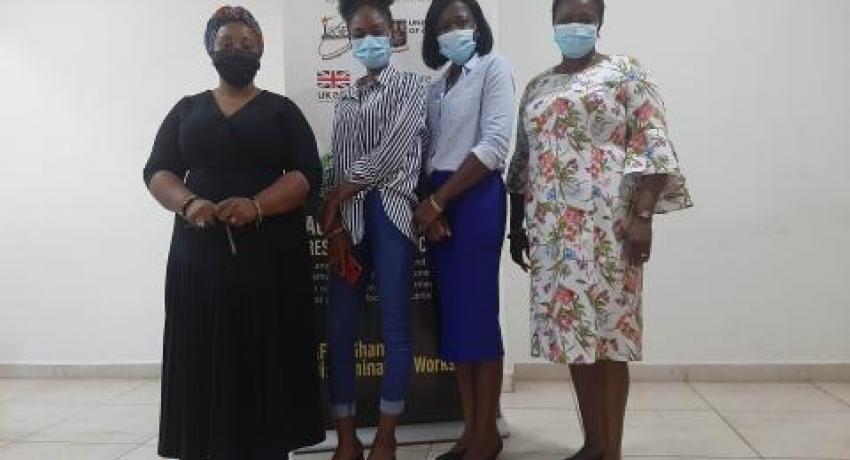Vicentia Quartey
The COVID-19 pandemic has forced events that would typically be held in person to move online. While this shift is positive in some regards, it is not without limitations, notably the missed opportunity for networking and the spontaneous exchanges that in-person events afford.
Faced with an expectant stakeholder community of research participants eager to learn about the outcome of the Agricultural Policy Research in Africa (APRA) project to which they contributed, including smallholder farmers, oil palm companies and policymakers, it was essential that an accessible, timely dissemination event was organised. Challenges such as the smallholder farmers’ rural locations and limited or lack of access to online meeting technologies meant that this event also needed to be held locally, with an extended reach to the wider community. The key objective was to achieve an event that’s accessible – in terms of both language and reach – to our wide-ranging stakeholders at the local and the national level.
Our efforts – planning an event responsive to the peculiar needs of all stakeholder groups – paid off. The result: a well-attended, COVID-safe, and accessible event that received coverage in regional and national media, providing an appropriate platform to disseminate our project findings.
Lessons learned
Organising a successful in-person event during COVID had its share of challenges, but we learned lessons throughout the process, and can now share advice to others hoping to achieve the same:
Choose a convenient location: To ensure maximum participation of research participants (end users of findings), we made the decision to hold the event in Takoradi, the capital town of the Western Region of Ghana, home to respondent communities. For us, this meant making the long, but totally worthwhile, three to four-hour road trip outside Accra. In Takoradi, we again chose a central location, the Western Regional Library, as it is both well-known and easily accessible.
These efforts not only secured maximum stakeholder attendance (by reducing travel time and effort), it also demonstrated our commitment to the pledge we made to return to respondent communities and share our findings, giving them the opportunity to make their voices heard. The latter point is especially critical to building sustained stakeholder relationships and minimising incidences of research fatigue among respondent communities.
As many participants noted: “Researchers always approach us with research questionnaires and hardly return with feedback. We are happy that you came back to share findings and engage with us.”
Use accessible language: Aside from summarising results in reasonably non-technical language, we also ensured there was local language translation, volunteered by one of the stakeholders. This, coupled with the generally flexible and relaxed atmosphere of the workshop, allowed us to connect more effectively with participants and vice versa, making for very interactive sessions.
![Mr Abass Mohammed, Ag. District Agric Director, provides local language translation support [Credit: Vicentia Quartey]](/sites/default/files/inline-images/BLOG%202_0.png)
Involve the media: While we limited in-person participation to selected stakeholders only, as COVID-19 protocols oblige, we made sure to engage media representatives who had the capacity to provide coverage in local as well as national media. We granted interviews and provided additional information needed to facilitate reportage, and ensure that outcomes of the research and discussions are extended to the wider community.
Bringing it all together: Finally, it is advisable to get support. In this case, we engaged logistics and communications support, which saved us lots of time and proved helpful in ensuring a smooth and seamless coordination of the various aspects, players and stages of the event towards successful outcomes.
![The research team (l – r): Dr Fred Dzanku, Dr Kofi Asante, and Louis Hodey [Credit: Vicentia Quartey]](/sites/default/files/inline-images/BLOG%203.png)
See selected online reports, here: Ghana News Agency; Myjoyonline.
This blog was originally published on the APRA website in May, 2021.
- Log in to post comments

